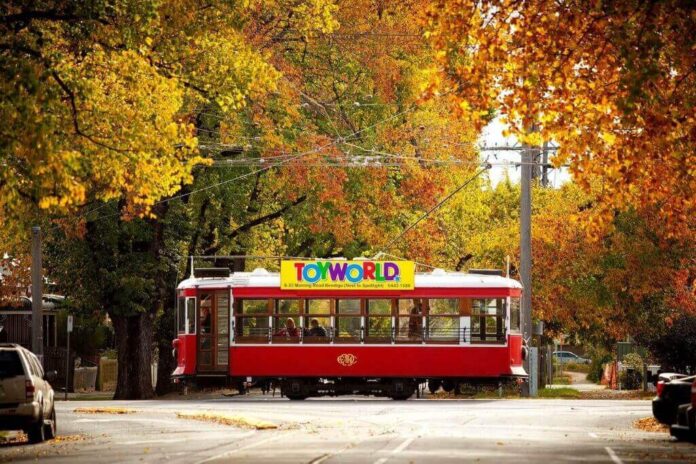There are so many attractions and things to do in Bendigo, which is only 90 minutes from Melbourne, Australia. We are confident you will find it to be the ideal day trip or weekend vacation from the Victorian metropolis.
1. What city is Bendigo?
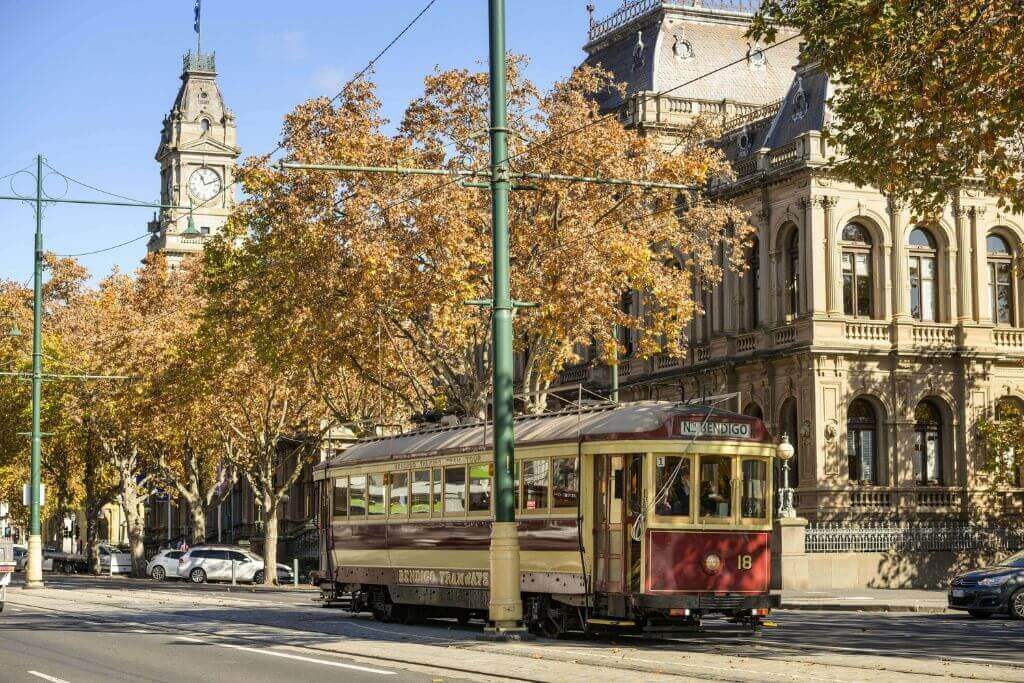
Only 150 kilometers separate Bendigo, a small city in Central Victoria, from Melbourne. The best method to get around the city is by car. However, taking the train is great for day trips.
2. What is Bendigo famous for?
Famous for its potteries in Bendigo. The Victoria Ceramic Centre is the name of the establishment. The area’s potteries date back to the 1850s, and the renowned Bendigo Pottery was founded in 1858.
3. What time of year is the best for travel to Bendigo?
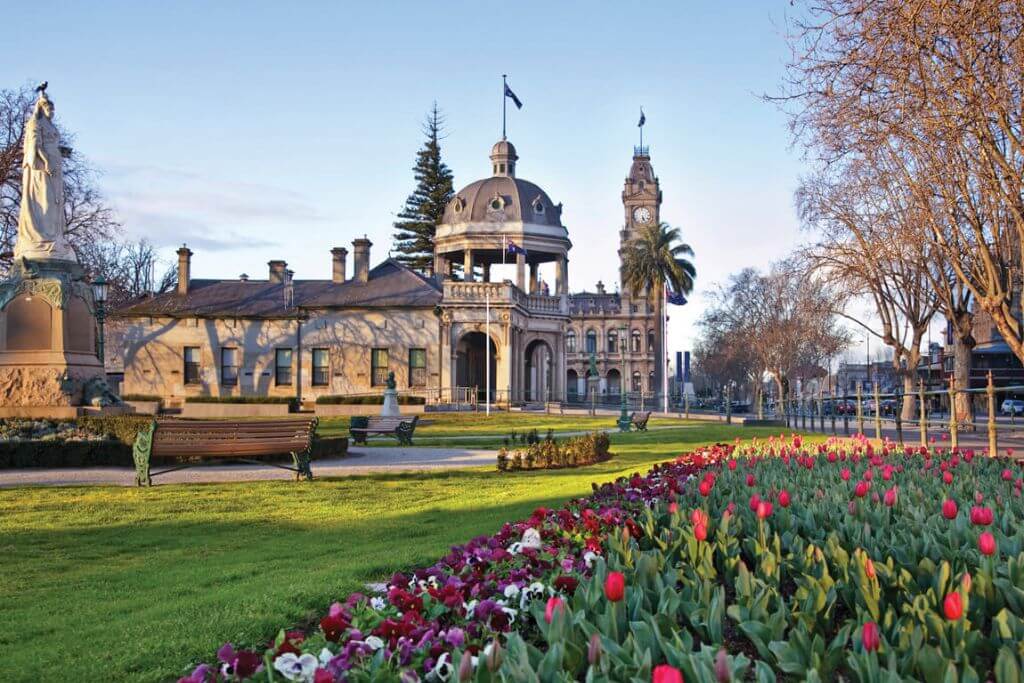
Bendigo is best visited in the autumn or spring when the weather is pleasant, and the parks are at their liveliest. Additionally, a wide variety of events are held at this time of year. During the Christmas/New Year season, many of Bendigo’s renowned cafés and restaurants choose to close their doors so that their patrons can take a break.
4. How long will it take you to travel to Bendigo?
The Bendigo CBD is best explored on a day trip, but there is so much to see and do that a stay of at least three nights is required! Bendigo has a rich history, and the elegant structures showcase the wealth generated during the 18th-century gold rush.
5. Best things to do in Bendigo
Explore underground gold mines
Between 1939 and 1954, this mine, which is close to Bendigo’s city center, produced almost a metric ton of gold. The rebirth of the city’s gold industry coincided with the opening of the Central Deborah Gold Mine, and operations lasted into the Second World War.
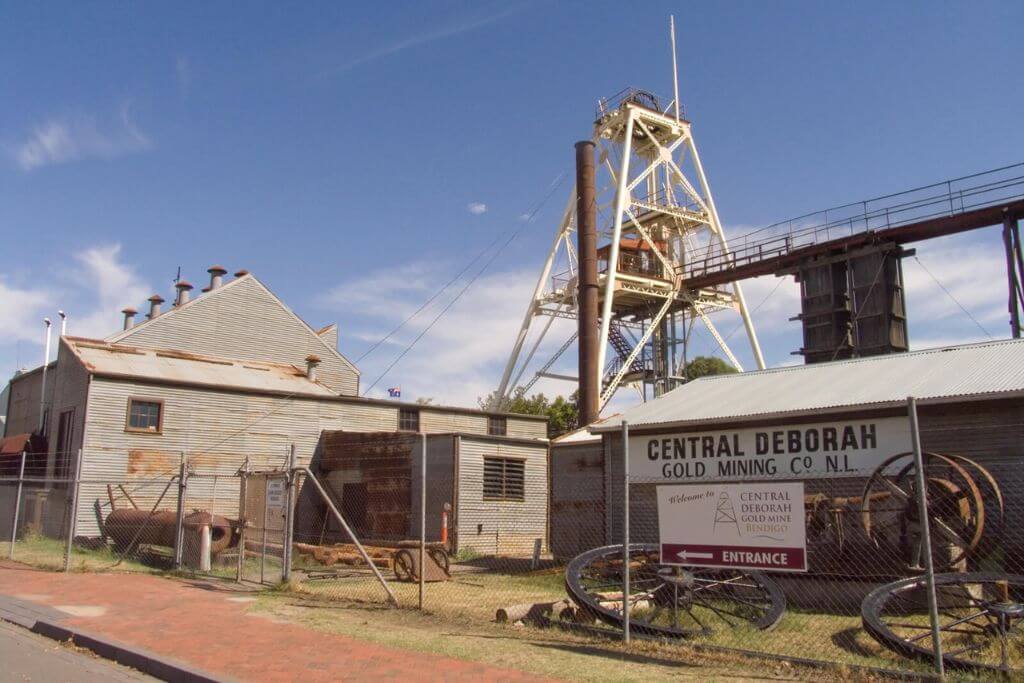
Since 1986, this has been a popular tourist destination. To improve guest comfort, the narrow main shaft was enlarged. It is one of the best things to do in Bendigo.
Depending on how daring you feel, you can choose how much of the mine you want to see. It will take you more than three hours to complete this underground excursion, during which time you will eat a miner’s lunch and climb ladders.
Visit Bendigo Art Gallery
The Volunteer Rifle chamber served as the foundation for the Bendigo Art Gallery, which was established in 1887 and has since expanded. The striking sculpture gallery, which was the most recent addition, was built in 2001 and was created by Melbourne-based Fender Katsalidis Architects.
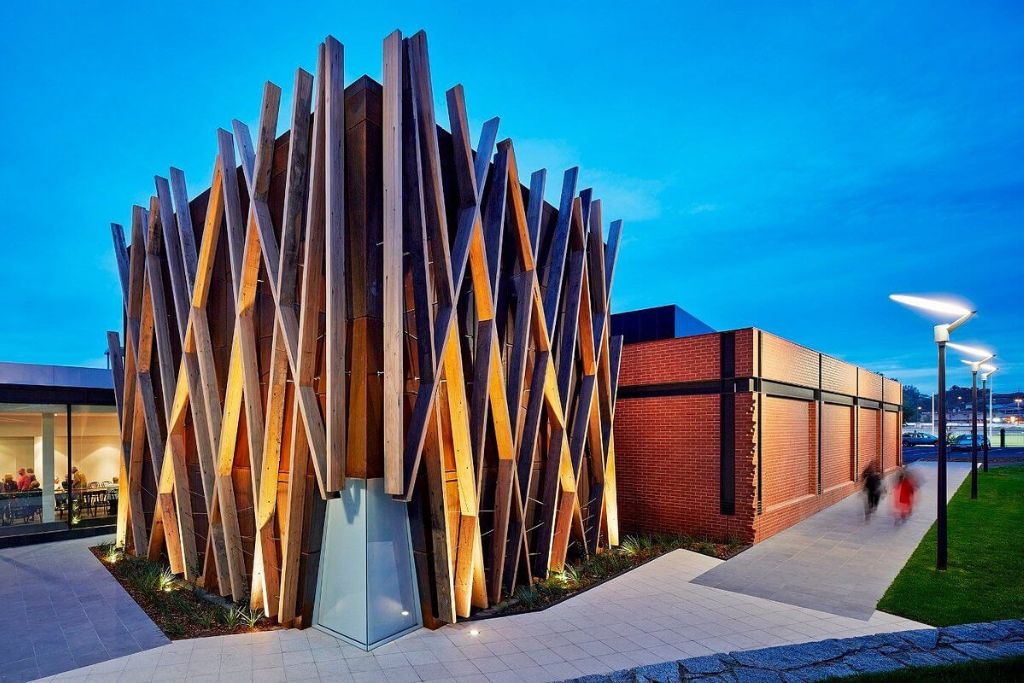
The collection of the Bendigo Art Gallery includes paintings, sculptures, photographs, works on paper, and decorative arts from the 19th, 20th, and 21st centuries.
The collection’s 19th-century paintings from Europe and Australia, including works by notable artists Pierre Puvis de Chavannes, Ernest Waterlow, Charles Conder, and Arthur Streeton, are particularly strong.
The museum maintains a schedule of entertaining temporary exhibits that cover everything from ancient artifacts lent by the British Museum to 20th-century cultural icons.
- Location: 42 View St, Bendigo VIC 3550, Australia
Don’t miss Golden Dragon Museum
Since the time of the gold rush, there has been a Chinese community in Bendigo, and the museum that documents this tradition is located on the site of one of the city’s first Chinatowns. This attraction, which debuted in 1991, examines these residents’ daily life as well as how Chinese culture has shaped the city since the 1850s.
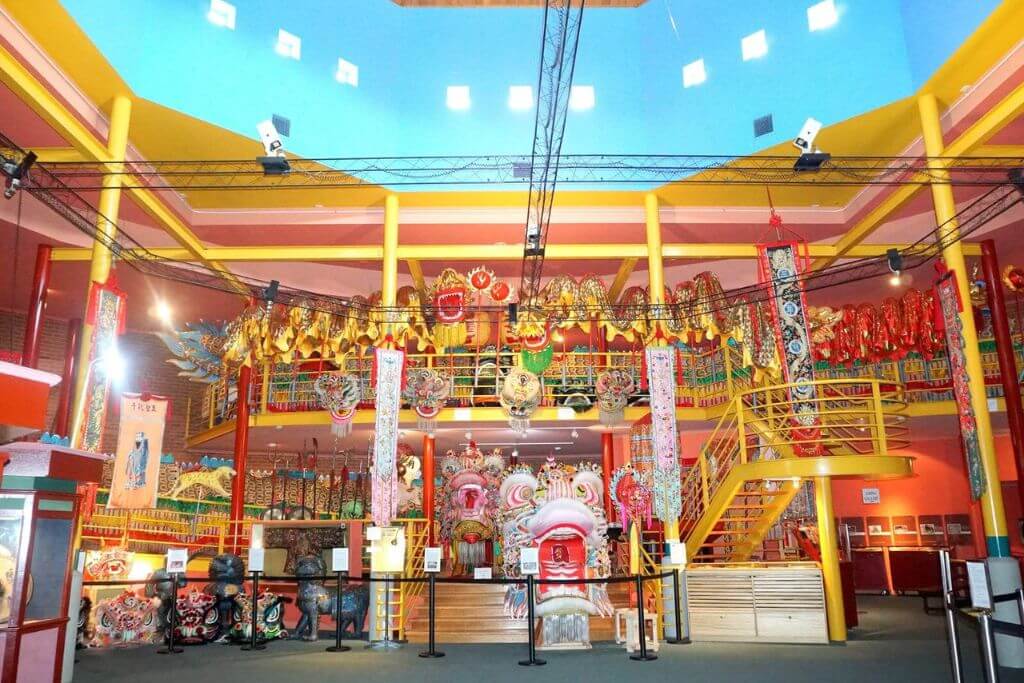
The Golden Dragon Museum is well-known throughout Australia as a center for Chinese-related cultural events. The collection’s focal point is a beautiful selection of theatrical costumes brocaded with gold thread from the late 19th century used as processional regalia.
The earliest artifacts here date back to (1600-1026 BCE). Additionally, you may view what is supposedly the world’s oldest and largest imperial dragons.
Walk Lake Weeroona
One of Bendigo’s most picturesque locations from the 1850s to the 1870s was a mine. The Melbourne Botanic Gardens’ art director then managed the site’s metamorphosis into an 18-hectare body of water.
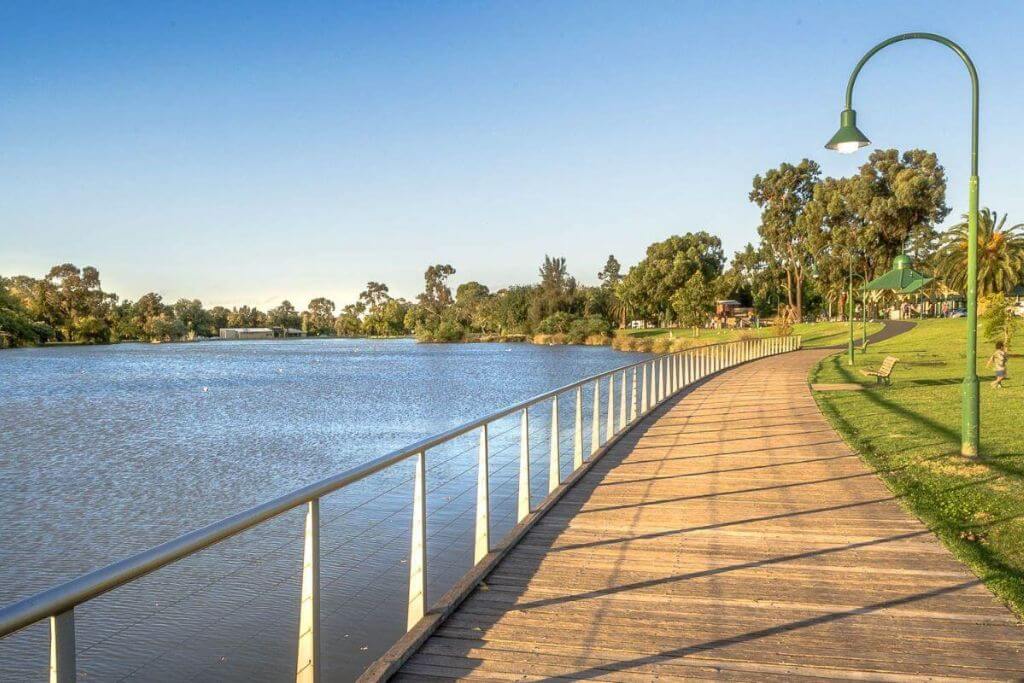
A walkway that circles Lake Weeroona’s shoreline through tranquil parkland and woods is located within a reserve. A circuit can be finished in around 20 minutes when walking casually.
On the east coast, a cafe is available for quick bites or a few scoops of gelato, and kids can let loose at the sizable adventure playground. It is one of the best things to do in Bendigo.
Take the tram to see Bendigo’s main attractions
The Bendigo Tramways have been powered since 1903 by battery, steam, and then electricity. The network proved too expensive to operate as a commuter service in the years following World War II. It was finally shut down in 1972 before being revived as a historical line.
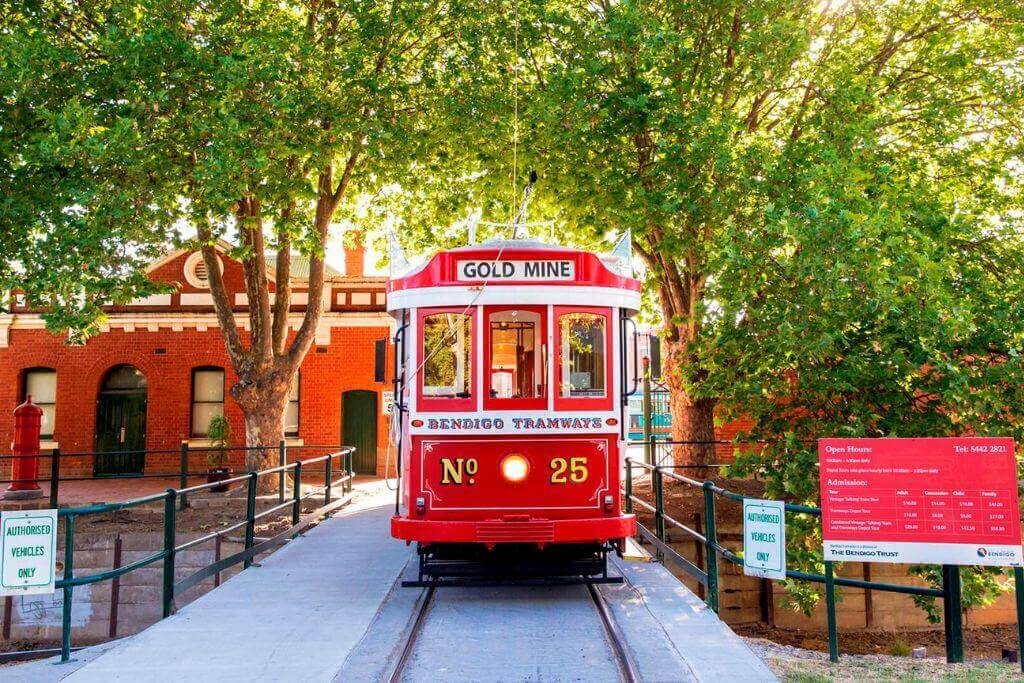
Between North Bendigo and the Central Deborah Gold Mine, you can take a tram through the city’s center. You can view practically all of Bendigo’s top sights on a hop-on, hop-off tour while riding a historic tram.
Every Monday, Wednesday, and Friday at 10:00, the Dja Dja Wurrung Tram departs from the Central Deborah Gold Mine and tells the 40,000-year history and customs of Bendigo’s original inhabitants.
Relax at Rosalind Park
More than 60 hectares of lawns and old trees, dotted with facilities and historical landmarks, surround Bendigo’s central business district.
The land now Rosalind Park is in a valley along Bendigo Creek and would have been essential to the local Dja Dja Wrung people long before European settlers arrived because of its constant freshwater springs.
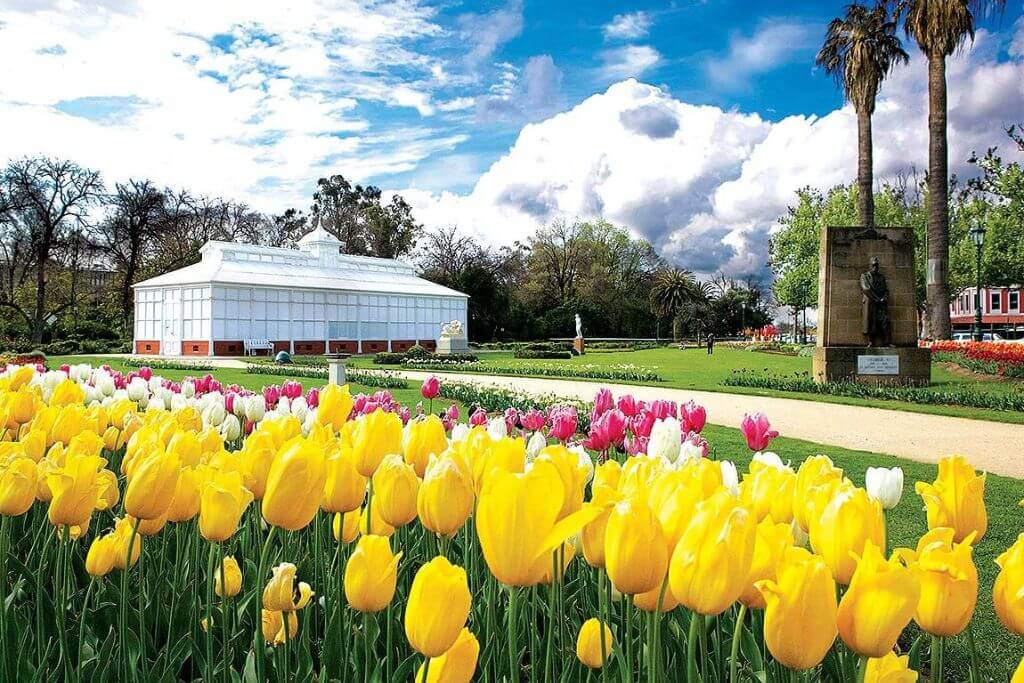
The Government Camp was located here in the early 1850s, and what is now a tranquil paradise was originally a collection of shallow shafts, puddling mills, and mullock heaps.
The renovated Poppet Head observation tower, which formerly watched over the neighboring Garden Gully United mine and was relocated to this location in 1931, is located at the west end.
- Location: 30 Gaol Rd, Bendigo VIC 3550, Australia
Learn about pottery
Australia’s oldest operating pottery was founded in Bendigo in 1858. It has rebounded since the 1970s, following a few ups and downs in the ensuing years. Since then, Bendigo Pottery has earned a reputation for excellence and innovation.
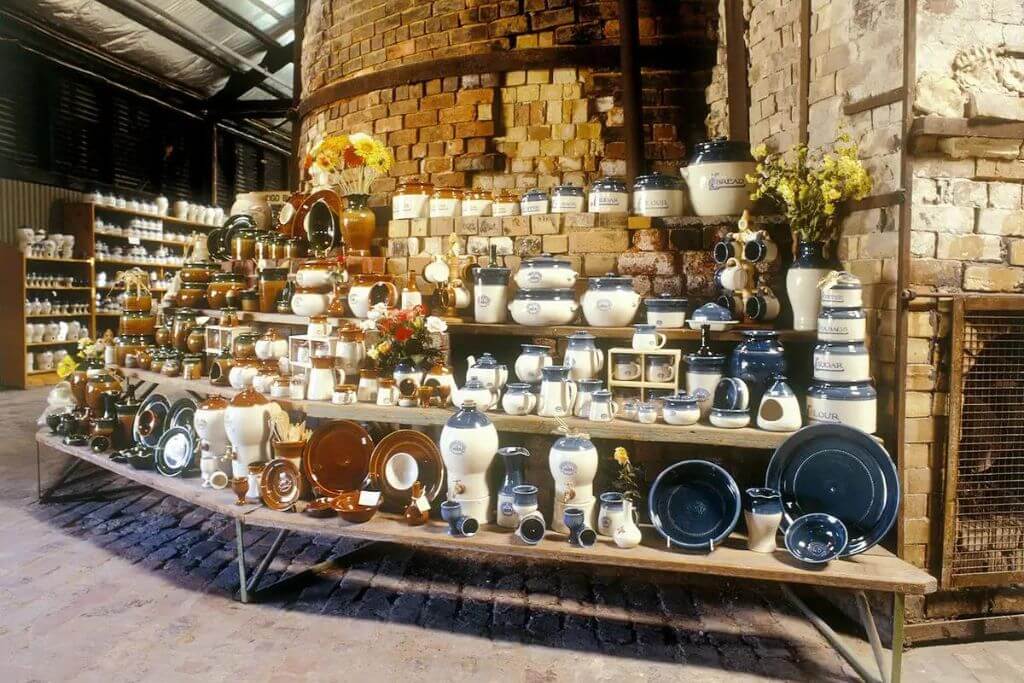
You may discover all there is to know about manufacturing and the age-old techniques still used by Bendigo’s talented potters at this ancient location dominated by wood-fired kilns. Both live performances and hands-on practice with a ceramic wheel are available.
A wide variety of modern and traditional pottery may be found in the sales gallery. There is also an antiques and collectibles shop and a workshop where local artists work to create jewelry, sculpture, paintings, textiles, and other items.
Enjoy the beautiful garden
The first public garden in the city was established in 1857. The location, a short distance northeast of the CBD, first appears on maps in 1854, only three years after gold was found in Bendigo.
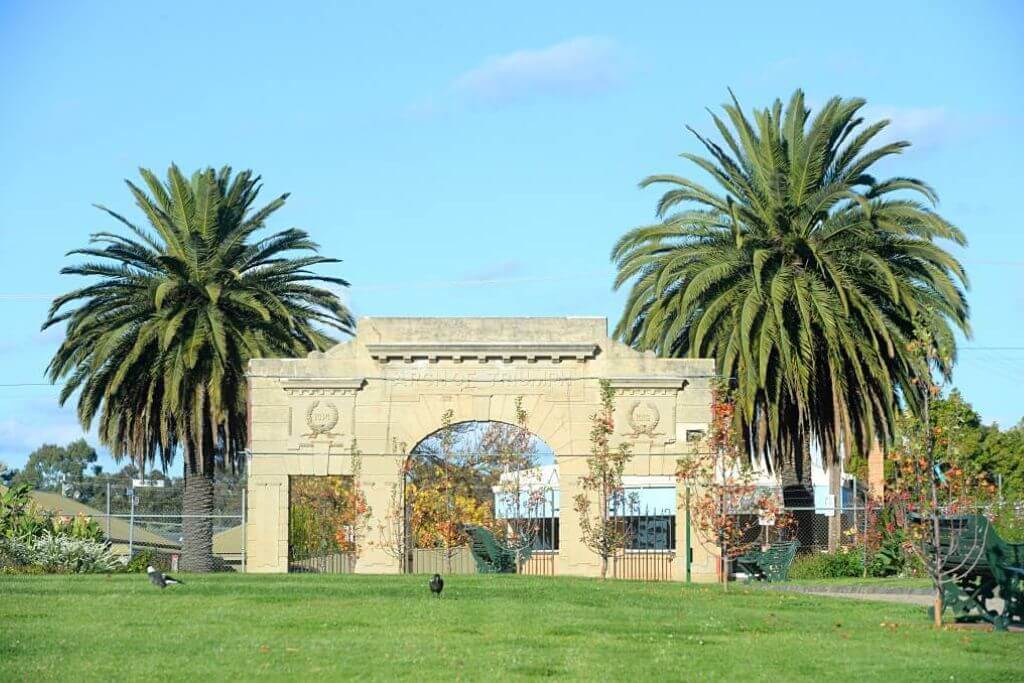
A relic of Bendigo Creek, the lake in the middle of the park is covered in local wetlands plants. It is one of the best things to do in Bendigo.
Besides, other sections of the park include the Indigenous Garden, Habitat Garden, Northern Victorian Garden, Cottage Garden of the Victorian Goldfields, and the National Canna and Lavender Collections.
Sacred Heart Cathedral is an amazing church
The church’s amazing size is explained by Bendigo’s gold in this comparatively tiny regional city. The construction of this magnificent Gothic Revival structure started in 1897 and wouldn’t be finished for almost 70 years due to the two world wars.
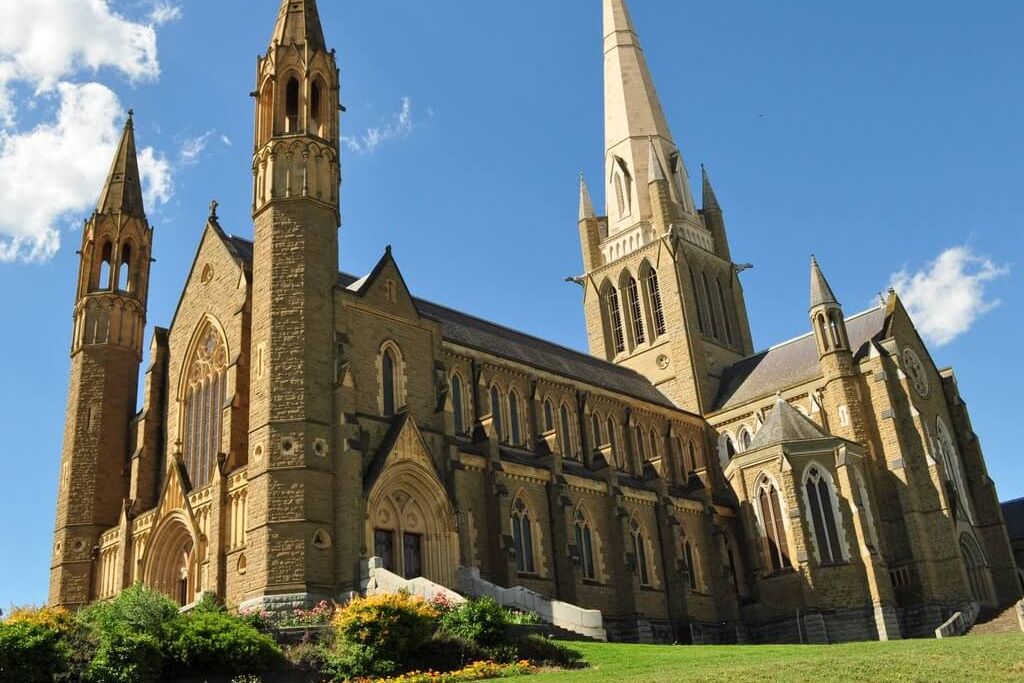
The estate of German-born Henry Backaus (1811–1882), Bendigo’s first Catholic priest, contributed the majority of the finance. During Bendigo’s early boom years, he accumulated significant riches and donated it all to the cathedral’s building.
One of the biggest in the nation, Sacred Heart has the second-tallest spire in the nation, behind St. Patrick’s in Melbourne, at 87 meters. Enter to fully appreciate the nave’s size, which has a wooden ceiling that rises to 24 meters.
Learn about science and technology
The focus of this Bendigo science museum is on play-based learning and interaction. Children can therefore get familiar with scientific concepts at more than 100 humorous exhibits virtually without realizing it.
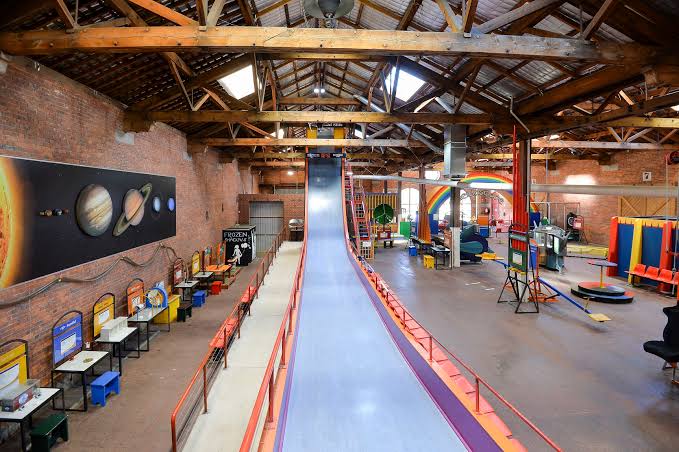
An air cannon that can spell out a message, an echo tube that is almost as long as the center itself, and a contraption that launches ping-pong balls at incredible distances solely by using the surrounding air are all examples of such exhibits.
The planetarium, where children can learn about the stars, planets, and solar system while relaxing on a beanbag, will also impress them. The tallest vertical slide in the Southern Hemisphere, with a sheer plunge of seven meters, is the main draw, though.
Great Stupa of Universal Compassion
The Great Stupa of Universal Compassion in Bendigo, Australia, is the biggest stupa in the Western Hemisphere and is the same size and shape as Tibet’s Great Stupa of Gyantse. This striking structure has a base width of 50 meters and rises 48 meters above the bushland near Bendigo. It is also intended to stand for a millennium.
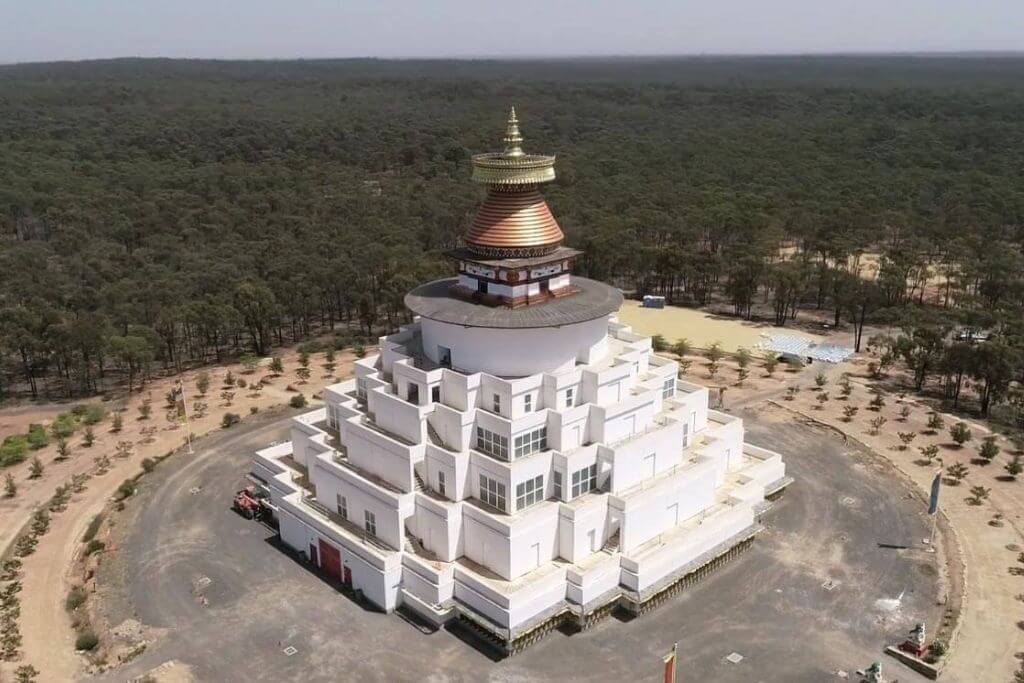
The Jade Buddha for Universal Peace, the world’s largest Buddha made of gemstone-quality jade, is one of the many revered items present.
In Canada, the enormous boulder from which it was carved was discovered in 2000. This and other artifacts can be seen during a tour that departs from the stupa’s visitor center and sheds light on Asian culture, Buddhism, and art.
Check out Bendigo Military Museum
As a monument to those who served in the First World War, the somber Returned Soldiers’ Memorial Hall was built in the Second Empire style in 1921. It is one of the best things to do in Bendigo.
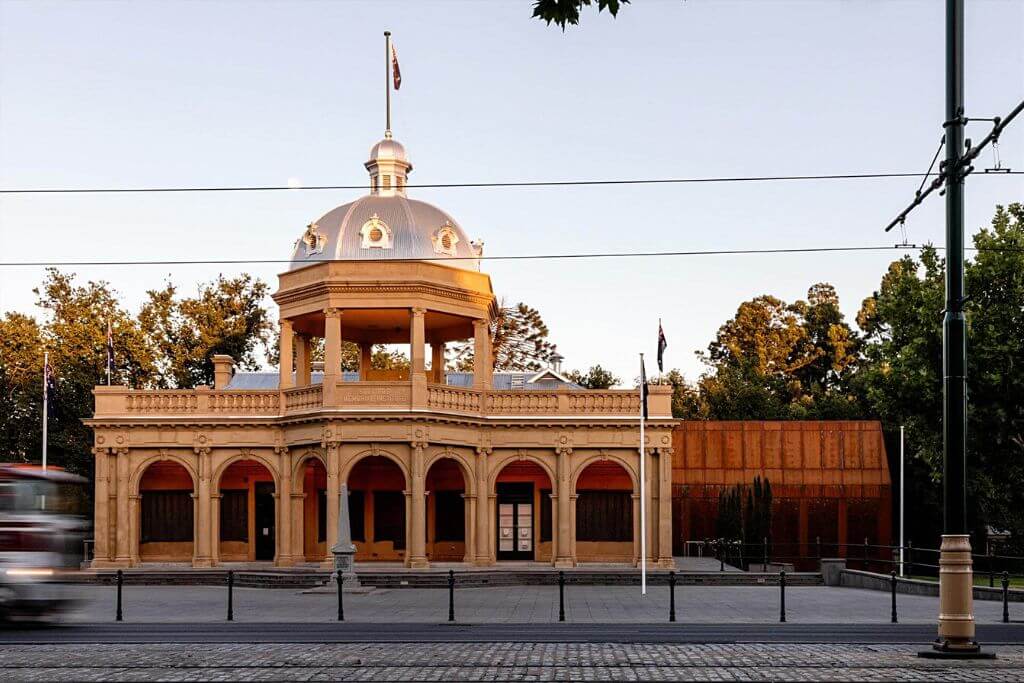
The museum inside reopened in 2018 following a two-year renovation and expansion, and it now houses a sizable collection of military artifacts and memorabilia documenting every battle from the Boer War to Iraq.
This is so big that it requires rotating the temporary exhibitions, and it features poignant works of “trench art” created on the battlefield as well as diaries, photos, documents, literature, weaponry, uniforms, identity tags, and side packs.
Go to Alexandra Fountain
Charing Cross is the crossroads of View Street and Pall Mall, which is practically in the middle of Bendigo. A fountain named for the then Princess of Wales, Alexandra of Denmark, was constructed here in 1880.
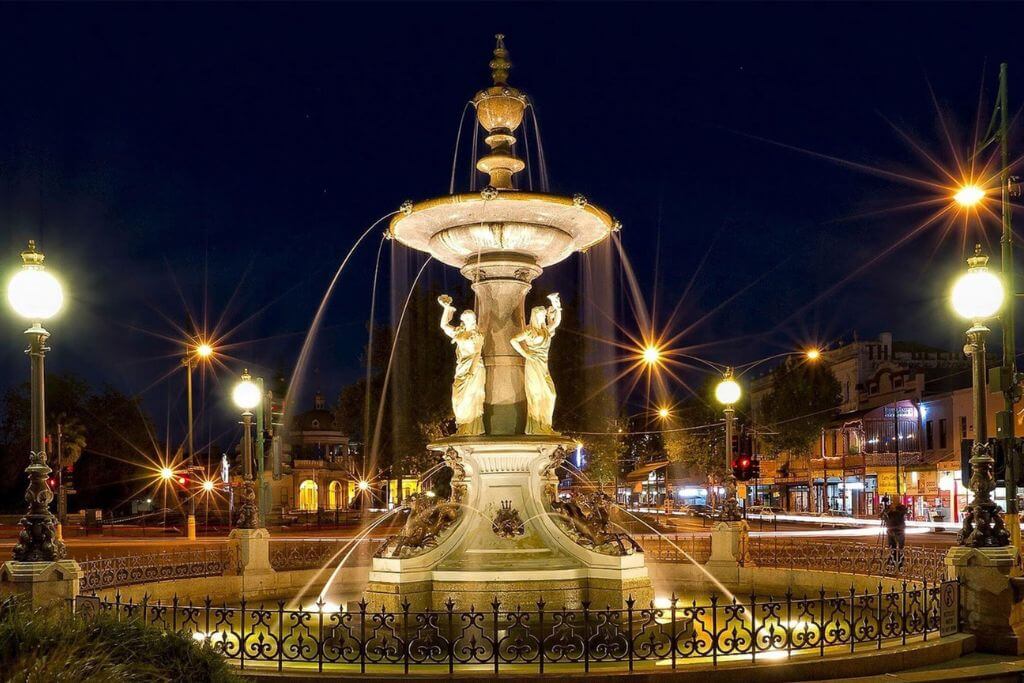
This monument, which attests to the wealth brought about by the goldfields, was created by W.C. Vahland, a noted public architect in Bendigo at the time. It is Victoria’s second-largest municipal fountain, measuring 8.5 meters in height and 15 meters in circumference.
It is also made of a combination of painted stone, iron, and Harcourt granite, and it features a group of four allegorical women standing above mercenaries and dolphins.
Bendigo Easter Festival
The Bendigo Easter Festival, which has been held annually since 1871, is the only time you can see Bendigo’s imperial dragon, Sun Loong, in action. The initial festival was held to generate money for a hospital and quickly developed into a tradition.
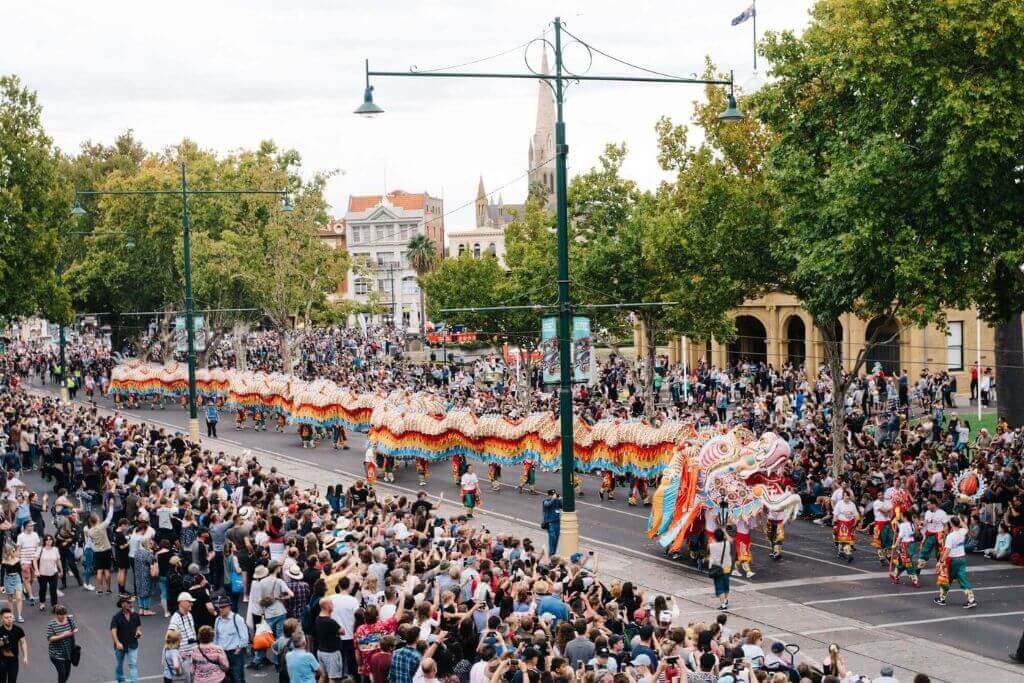
Every year, Sun Loong attends the Easter Procession, which is held on Easter Sunday and has more than 100 floats and over 1,000 participants. A carnival in the CBD, the Torchlight Procession, and the ceremony to awaken old Sun Loong from his year-long sleep are a few more long-standing customs.
The Chinese Spring Festival, which features martial arts, lion dancing, and traditional Chinese fan, ribbon, and drum dances, is currently taking place in Yi Yuan Gardens. It is one of the best things to do in Bendigo.
